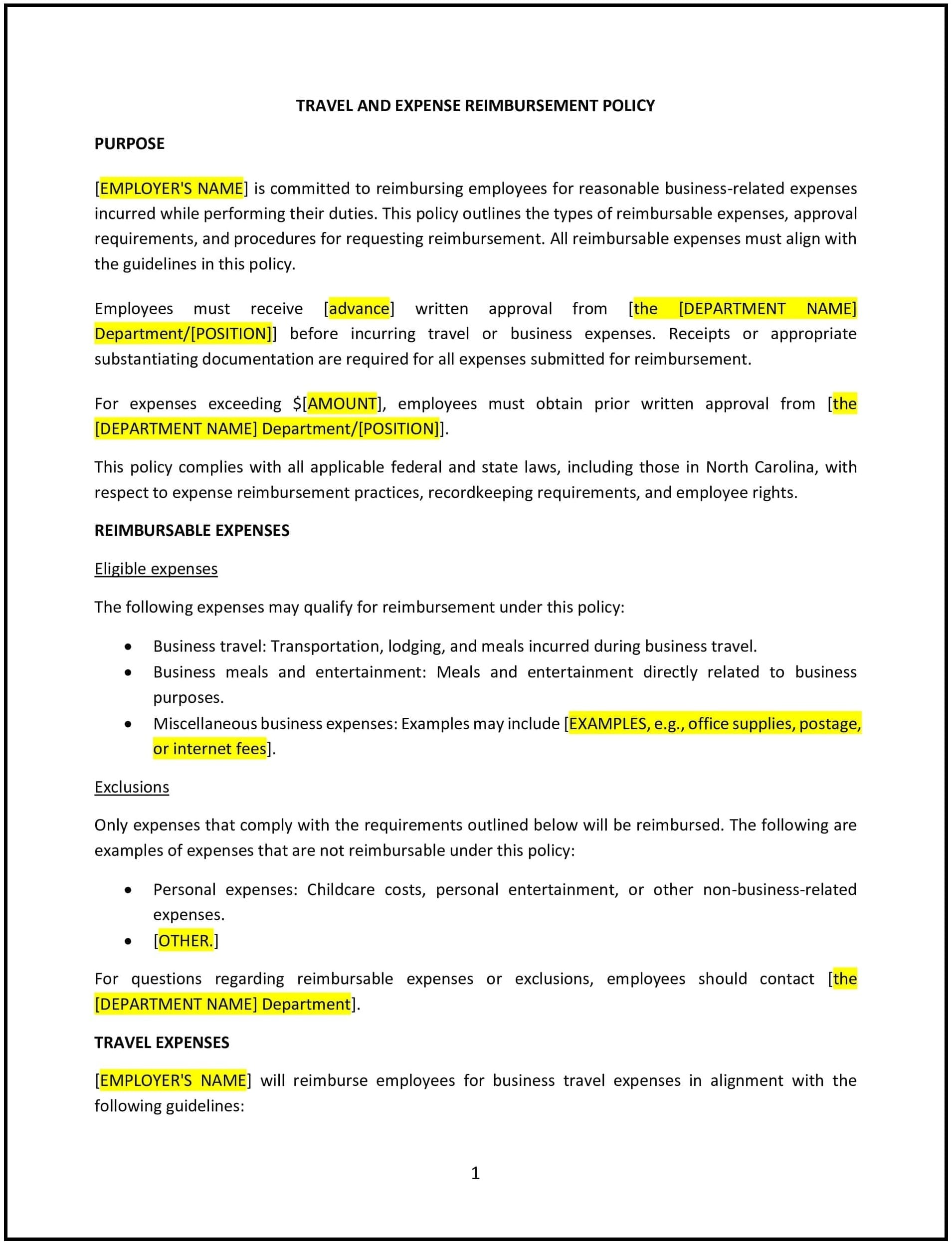Travel and expense reimbursement policy (North Carolina): Free template
Got contracts to review? While you're here for policies, let Cobrief make contract review effortless—start your free review now.

Customize this template for free
Travel and expense reimbursement policy (North Carolina)
This travel and expense reimbursement policy is designed to help North Carolina businesses establish guidelines for employee travel and the reimbursement of related expenses. It outlines procedures for submitting expense reports, eligible expenses, and approval processes.
By adopting this policy, businesses can promote transparency, reduce financial risks, and support employees during business travel.
How to use this travel and expense reimbursement policy (North Carolina)
- Define eligible expenses: Clearly explain what expenses are reimbursable, such as airfare, lodging, meals, and transportation.
- Establish submission procedures: Provide steps for employees to submit expense reports, including required documentation and deadlines.
- Outline approval processes: Describe how expense reports will be reviewed and approved, ensuring accuracy and adherence to the policy.
- Set spending limits: Specify limits for certain expenses, such as daily meal allowances or lodging costs.
- Train employees: Educate staff on the policy and their responsibilities when incurring and reporting expenses.
- Review and update: Assess the policy annually to strengthen alignment with evolving business needs and financial practices.
Benefits of using this travel and expense reimbursement policy (North Carolina)
This policy offers several advantages for North Carolina businesses:
- Promotes transparency: Provides clear guidelines for employees on eligible expenses and reimbursement processes.
- Reduces financial risks: Ensures accurate and timely reimbursement, minimizing errors or misuse of funds.
- Supports employees: Helps employees manage business travel expenses effectively, reducing financial stress.
- Enhances accountability: Establishes clear procedures for submitting and approving expense reports.
- Builds trust: Demonstrates a commitment to fair and consistent reimbursement practices.
Tips for using this travel and expense reimbursement policy (North Carolina)
- Communicate clearly: Ensure all employees understand the policy and their responsibilities when incurring travel expenses.
- Provide training: Educate employees on submitting expense reports and adhering to spending limits.
- Monitor compliance: Regularly review expense reports to ensure adherence to the policy and identify potential issues.
- Encourage feedback: Seek input from employees and managers to improve the policy and processes.
- Update regularly: Review the policy annually to strengthen alignment with evolving business needs and financial practices.